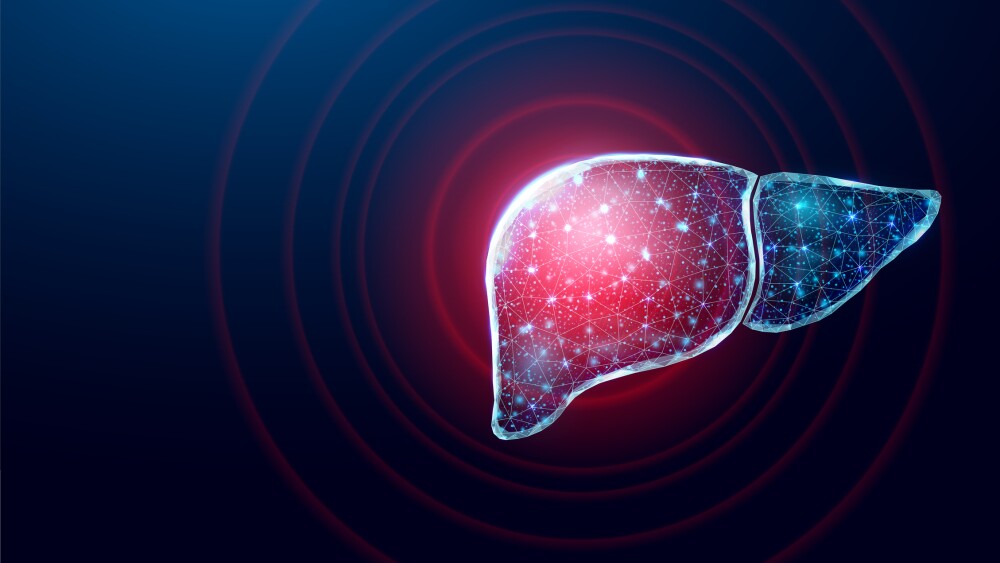Aurinia Pharmaceuticals Inc. (NASDAQ: AUPH) (Aurinia or the Company), today announced that data from multiple studies of LUPKYNIS™ (voclosporin) for the treatment of people with lupus nephritis (LN), a serious complication of systemic lupus erythematosus (SLE) resulting in potentially life-threatening damage to the kidneys, will be presented at American Society of Nephrology (ASN) Kidney Week 2021 and at American College of Rheumatology (ACR) Convergence 2021
Data to highlight the safety, tolerability and efficacy of LUPKYNIS in patients with lupus nephritis
VICTORIA, British Columbia--(BUSINESS WIRE)-- Aurinia Pharmaceuticals Inc. (NASDAQ: AUPH) (Aurinia or the Company), a biopharma company committed to delivering therapeutics that change the course of autoimmune disease, today announced that data from multiple studies of LUPKYNIS™ (voclosporin) for the treatment of people with lupus nephritis (LN), a serious complication of systemic lupus erythematosus (SLE) resulting in potentially life-threatening damage to the kidneys, will be presented at American Society of Nephrology (ASN) Kidney Week 2021 and at American College of Rheumatology (ACR) Convergence 2021. ASN Kidney Week will take place virtually on November 2-7 and ACR Convergence will take place virtually on November 3-9.
“Aurinia is committed to growing the body of clinical research supporting LUPKYNIS as a safe and effective option for people with lupus who are fighting to protect their kidneys from the destructive impact of lupus nephritis,” said Neil Solomons, M.D., Chief Medical Officer at Aurinia. “We look forward to presenting new data for LUPKYNIS at ASN and ACR, including an updated interim analysis of data from the AURORA 2 continuation study evaluating the long-term safety and tolerability of LUPKYNIS.”
The accepted abstract presentations and posters are listed below and can be viewed virtually from November 4-6 at ASN and from November 8-9 at ACR. The details are listed as follows.
Virtual ASN Kidney Week 2021 Presentations and Posters:
Thursday, November 4, 2021
Title: “Chronic Dosing of Voclosporin at Clinically Relevant Exposure Levels Does Not Induce Renal Fibrosis Markers in Rats”
Presenting author: Linda M. Rehaume, Ph.D., senior research scientist at Aurinia
Time: Available on-demand beginning at 10:00 a.m. PDT
Saturday, November 6, 2021
Title: “Voclosporin is Effective in Achieving Complete Renal Response in Severe Lupus Nephritis”
Presenting author: Hanni Menn-Josephy, M.D., Boston Medical Center
Time: 4:30 p.m. - 5:30 p.m. PDT
Virtual ACR Convergence 2021 Presentations and Posters:
Monday, November 8, 2021
Title: “Voclosporin for Lupus Nephritis: Interim Analysis of the AURORA 2 Extension Study”
Presenting author: Amit Saxena, M.D., NYU School of Medicine
Session: Plenary III (1424–1429)
Time: 10:45 a.m. - 11:00 a.m. EST
Tuesday, November 9, 2021
Title: “ Voclosporin is Effective in Achieving Complete Renal Response Across Lupus Nephritis Biopsy Classes: Pooled Data from the AURA-LV and AURORA 1 Trials”
Presenting author: Anca Askanase, M.D., M.P.H., Columbia University Medical Center
Session: SLE – Treatment Poster (1732–1772)
Time: 8:30 a.m. - 10:30 a.m. EST
Title: “Efficacy of Voclosporin in Recent Onset Lupus Nephritis”
Presenting author: Meggan Mackay, M.D., M.S., Feinstein Institute for Medical Research
Session: SLE – Treatment Poster (1732–1772)
Time: 8:30 a.m. - 10:30 a.m. EST
About Lupus Nephritis
Lupus nephritis (LN) is a serious manifestation of systemic lupus erythematosus (SLE), a chronic and complex autoimmune disease. About 200,000-300,000 people live with SLE in the U.S. and approximately one out of three of these individuals develop LN. If poorly controlled, LN can lead to permanent and irreversible tissue damage within the kidney, resulting in kidney failure. Black and Asian individuals with SLE are four times more likely to develop LN and individuals of Hispanic ancestry are approximately twice as likely to develop the disease when compared with Caucasian individuals. Black and Hispanic individuals with SLE also tend to develop LN earlier and have poorer outcomes when compared to Caucasian individuals.
About LUPKYNIS
LUPKYNIS™ is the first FDA-approved oral medicine for the treatment of adult patients with active lupus nephritis (LN). LUPKYNIS is a novel, structurally modified calcineurin inhibitor (CNI) with a dual mechanism of action, acting as an immunosuppressant through inhibition of T-cell activation and cytokine production and promoting podocyte stability in the kidney. The recommended starting dose of LUPKYNIS is three capsules twice daily with no requirement for serum drug monitoring. Dose modifications can be made based on Aurinia’s proprietary personalized eGFR-based dosing protocol. Boxed Warning, warnings and precautions for LUPKYNIS are consistent with those of other CNI-immunosuppressive treatments.
About Aurinia
Aurinia is a fully integrated biopharmaceutical company focused on delivering therapies to treat targeted patient populations that are impacted by serious diseases with a high unmet medical need. The Company recently introduced the first FDA-approved oral therapy indicated for the treatment of adult patients with active lupus nephritis (LN). Aurinia’s head office is in Victoria, British Columbia; its U.S. commercial hub is in Rockville, Maryland; and the Company focuses development efforts globally.
INDICATION AND IMPORTANT SAFETY INFORMATION
INDICATIONS
LUPKYNIS is indicated in combination with a background immunosuppressive therapy regimen for the treatment of adult patients with active LN. Limitations of Use: Safety and efficacy of LUPKYNIS have not been established in combination with cyclophosphamide. Use of LUPKYNIS is not recommended in this situation.
IMPORTANT SAFETY INFORMATION
BOXED WARNINGS: MALIGNANCIES AND SERIOUS INFECTIONS
Increased risk for developing malignancies and serious infections with LUPKYNIS or other immunosuppressants that may lead to hospitalization or death.
CONTRAINDICATIONS
LUPKYNIS is contraindicated in patients taking strong CYP3A4 inhibitors because of the increased risk of acute and/or chronic nephrotoxicity, and in patients who have had a serious/severe hypersensitivity reaction to LUPKYNIS or its excipients.
WARNINGS AND PRECAUTIONS
Lymphoma and Other Malignancies: Immunosuppressants, including LUPKYNIS, increase the risk of developing lymphomas and other malignancies, particularly of the skin. The risk appears to be related to increasing doses and duration of immunosuppression rather than to the use of any specific agent.
Serious Infections: Immunosuppressants, including LUPKYNIS, increase the risk of developing bacterial, viral, fungal, and protozoal infections (including opportunistic infections), which may lead to serious, including fatal, outcomes.
Nephrotoxicity: LUPKYNIS, like other CNIs, may cause acute and/or chronic nephrotoxicity. The risk is increased when CNIs are concomitantly administered with drugs associated with nephrotoxicity.
Hypertension: Hypertension is a common adverse reaction of LUPKYNIS therapy and may require antihypertensive therapy.
Neurotoxicity: LUPKYNIS, like other CNIs, may cause a spectrum of neurotoxicities: severe include posterior reversible encephalopathy syndrome (PRES), delirium, seizure, and coma; others include tremor, paresthesia, headache, and changes in mental status and/or motor and sensory functions.
Hyperkalemia: Hyperkalemia, which may be serious and require treatment, has been reported with CNIs, including LUPKYNIS. Concomitant use of agents associated with hyperkalemia may increase the risk for hyperkalemia.
QTc Prolongation: LUPKYNIS prolongs the QTc interval in a dose-dependent manner when dosed higher than the recommended lupus nephritis therapeutic dose. The use of LUPKYNIS in combination with other drugs that are known to prolong QTc may result in clinically significant QT prolongation.
Immunizations: Avoid the use of live attenuated vaccines during treatment with LUPKYNIS. Inactivated vaccines noted to be safe for administration may not be sufficiently immunogenic during treatment with LUPKYNIS.
Pure Red Cell Aplasia: Cases of pure red cell aplasia (PRCA) have been reported in patients treated with another CNI immunosuppressant. If PRCA is diagnosed, consider discontinuation of LUPKYNIS.
Drug-Drug Interactions: Avoid co-administration of LUPKYNIS and strong CYP3A4 inhibitors or with strong or moderate CYP3A4 inducers. Reduce LUPKYNIS dosage when co-administered with moderate CYP3A4 inhibitors. Reduce dosage of certain P-gp substrates with narrow therapeutic windows when co-administered.
ADVERSE REACTIONS
The most common adverse reactions (>3%) were glomerular filtration rate decreased, hypertension, diarrhea, headache, anemia, cough, urinary tract infection, abdominal pain upper, dyspepsia, alopecia, renal impairment, abdominal pain, mouth ulceration, fatigue, tremor, acute kidney injury, and decreased appetite.
SPECIFIC POPULATIONS
Pregnancy/Lactation: May cause fetal harm. Advise not to breastfeed.
Renal Impairment: Not recommended in patients with baseline eGFR ≤45 mL/min/1.73 m2 unless benefit exceeds risk. Severe renal impairment: Reduce LUPKYNIS dose.
Mild and Moderate Hepatic Impairment: Reduce LUPKYNIS dose. Severe hepatic impairment: Avoid LUPKYNIS use.
Please see Prescribing Information, including Boxed Warning, and Medication Guide for LUPKYNIS.
View source version on businesswire.com: https://www.businesswire.com/news/home/20211026005821/en/
Contacts
Media:
Dana Lynch
Corporate Communications, Aurinia
dlynch@auriniapharma.com
Investors:
IR@auriniapharma.com
Source: Aurinia Pharmaceuticals Inc.




